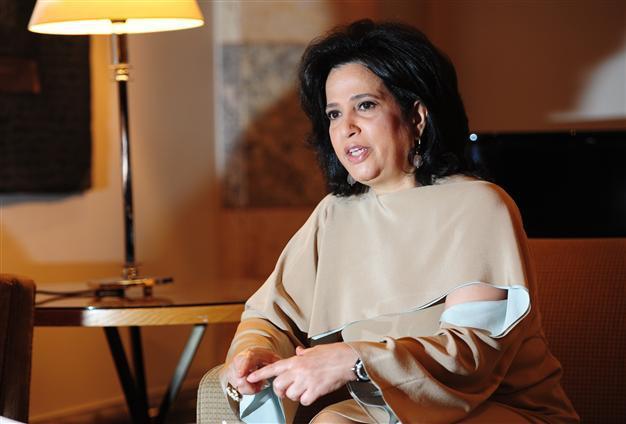Bahrain’s minister blames Iran for crisis
ISTANBUL - Hürriyet Daily News

Bahrain’s Culture Minister Al Khalifa attended a meeting in Istanbul April 25. DAILY NEWS photo, Emrah GÜREL
Bahrain’s Minister of Culture Sheikha Mai bint Mohammed Al Khalifa has blamed Iran for the anti-government protests and political crisis in the country that has been going on since February 2011.
“Iran’s involvement is very clear. To be honest, what is going on right now is about the role of Iran, but the effect will be negative for the whole region,” Al Khalifa said during a roundtable discussion she attended in Istanbul on April 25, organized by the Turkish Policy Quarterly.
Al Khalifa said the opposition movement in Bahrain today is not a national, but a sectarian movement. “Today’s movement is not a national movement, it is a Shiite sectarian movement. Bahrain is not under occupation like the Palestine. So when citizens are destroying local infrastructure, hospitals, et cetera, you cannot call this as an ‘intifada,’” Al Khalifa said.
Al Khalifa also said one cannot generalize about the situations in the Arab Spring countries. “In Tunisia, Egypt and Libya, mostly their economic problems led to what is called the Arab Spring. But Bahrain is different, because it is a welfare state.”
The Peninsula Shield forces from the Gulf countries still remain in Bahrain, Al Khalifa said. “They are in Bahrain according to GCC [Gulf Cooperation Council] agreements; they are installed in particular installations and they have done their job.”
Bahrain, a U.S. ally that hosts the American Fifth Fleet, has been in turmoil since the protests began. Although martial law was imposed and Saudi troops were brought in to crush the revolt after one month, the strife has continued, with regular mass marches by opposition parties and violent clashes with riot police. Foreign governments, rights groups and media watchdogs have criticized Bahrain for its handling of the protests and the slow pace of reforms.
